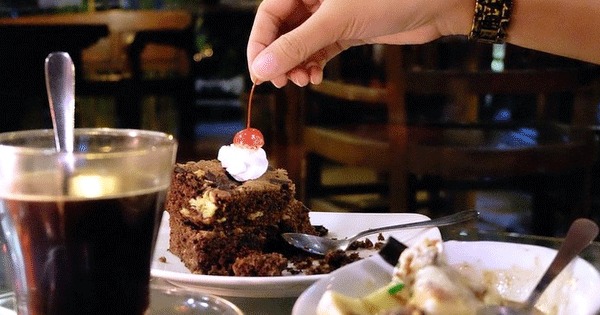For some of us, the trick to a healthy diet is portion control. If you put a lot on your plate at dinner time, chances are, you're going to eat as much as you can stuff down. For many nutritionists, the trick to losing weight is simply eating slowly, and simply eating until you're full.
As some of you may or may not already know, it takes a while for your stomach to realize that you're full. That means that if you're prone to eating really fast, you might not know you're full until after you've already have five to six extra bites, causing you to get even more full.
How can we combat this?
Simple: scientists at UCLA recently developed a necklace that monitors your eating habits and tells you when you're about to eat too much.
It's called WearSens (it has been nicknamed "the diet choker"). The idea is pretty simple. A special sensor called the piezoelectric sensor tracks the vibrations in your neck to determine when you’re eating and drinking. If the vibrations are occurring too frequently, the necklace will send a message to your phone to let you know you're eating too much based on the users stats (age, weight, height, etc.).
This sensor is so unique that it can also tell what you're eating--not just when you're eating--since different foods cause different vibrations in the neck.
In their trials, scientists found that it had a 90 percent success rate when determining when distinguishing between hard foods and a 75 percent rate when dealing with soft foods.
It can even tell the difference between hot and cold drinks!
Along with the app, the necklace will help remind you when you've eaten too much, or when you've eaten too much of a certain kind of food.
Founder Majid Sarrafzadeh explained, "Many nutrition methods are based on writing down what you eat. But this method has low compliance, so we wanted to overcome these issues and wanted to do something that a pedometer does for activity."
The prototype will soon be tested for FDA approval.
Check out a picture of the prototype below:

What do you think about this? Let us know in the comments!
Photo Copyright © 2015 jarotsetya/Instagram





